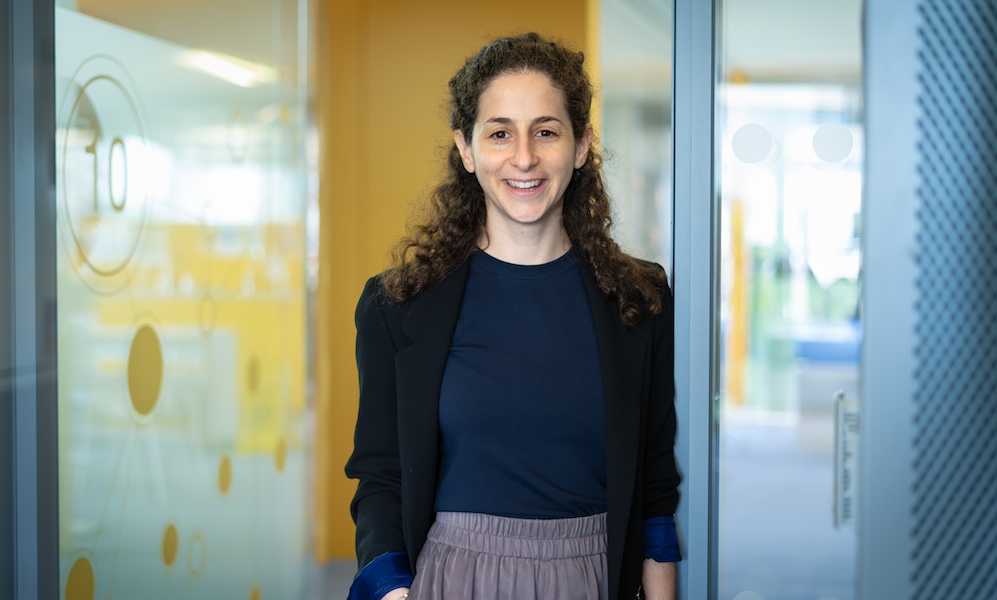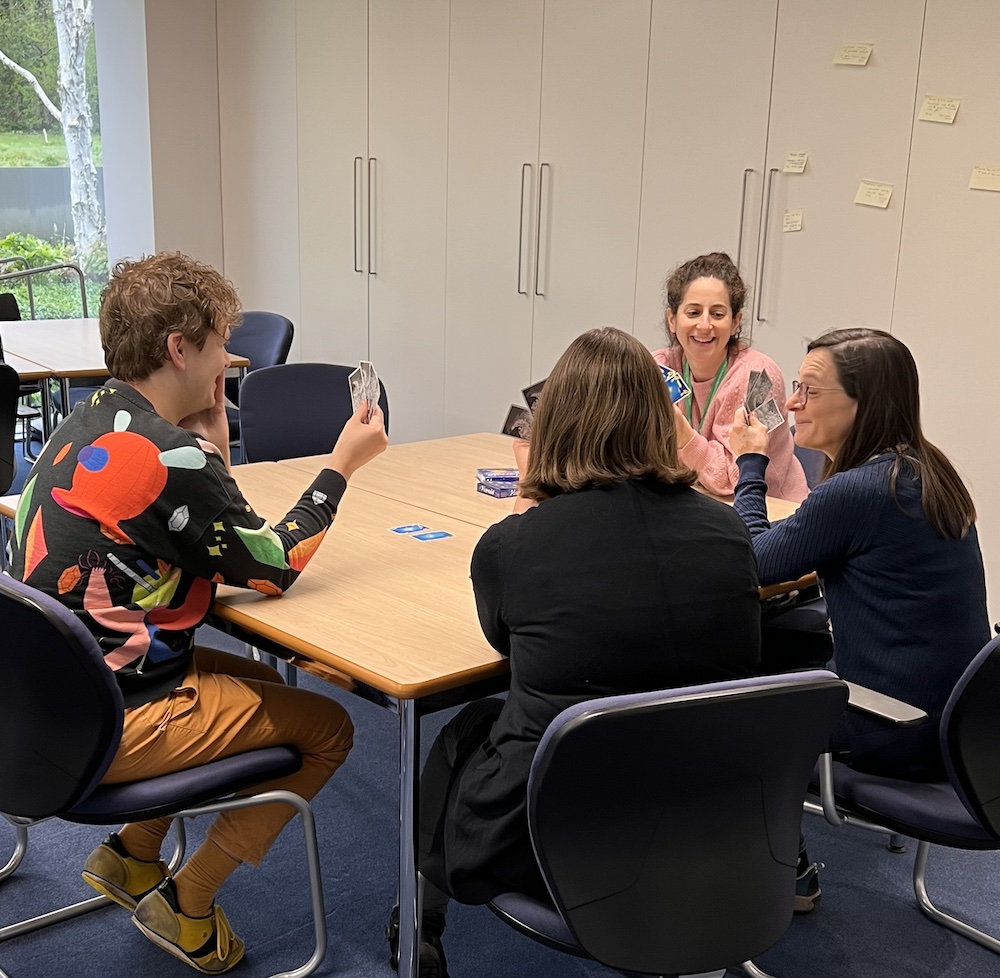
We are EMBL: Kim Gurwitz on working with global partners to support bioinformatics training
Kim Gurwitz talks about her role as Scientific Training Lead at EMBL-EBI and how collaborative projects for bioinformatics training support researchers and service providers in making the most of publicly available data

The EMBL-EBI Training team delivers an extensive training programme including workshops, courses, and free, on-demand e-learning. The team’s vision is to create a programme that supports scientists, regardless of location, sector, or career stage, in making full use of public life science data.
Kim Gurwitz joined the team in 2022 and leads its grants programme. We spoke with her to find out how she collaborates with EMBL colleagues and partners worldwide to expand and deliver EMBL-EBI’s training mission.
What is your professional background?
I started my career as a researcher. My background is in bioinformatics and medical biochemistry, but I quickly realised that what I enjoyed most was sharing skills and ways of working with others. This passion for learning and development changed the trajectory of my career from researcher to bioinformatics training.
I’ve supported learning and development across Africa, Europe, and the UK through initiatives like H3ABioNet, a pan-African bioinformatics network where I led training and capacity development initiatives. I also coordinated training impact assessment for ELIXIR and worked at University College London’s academic careers office, where I was responsible for translational research training.
What does your role entail?
In my role as Scientific Training Lead at EMBL-EBI, I work in partnership with communities within and beyond EMBL to identify training gaps, source funds, and develop training programmes to address these needs. I co-lead a team of scientific training officers who work closely with subject matter experts and professional staff to develop and deliver training.
As training professionals, our team is part of the global bioinformatics training community, and I participate in events such as the Global Bioinformatics Education Summit. This summit aims to establish best practices in bioinformatics training globally, focusing on topics such as competency-based training, impact assessment, and different career paths. By working together, we strengthen global capacity to deliver world-class biodata science training.
What motivated you to work at EMBL-EBI?
I was looking for a leadership position at an organisation that supports and champions training. EMBL-EBI is exactly that, and I was inspired by the organisation’s global reach. EMBL’s ‘Molecules to Ecosystems’ programme, which had just launched when I was interviewing in 2022, offered a unique opportunity to support scientists in solving some of the planet’s biggest challenges. I was excited by the combination of technical skills, interpersonal skills, and team-focused science that I could support through this programme.
How do you work with collaborators globally in the training programme?
Our approach to training, whether with local or global partners, is based on mutual respect and co-design. We work closely with subject matter experts and scientists in our user communities to co-develop training that builds competence, capacity, and culture. In this way, we learn from each other and build long-standing relationships.
Key principles that drive research culture, like FAIR (Findable, Accessible, Interoperable and Reusable) data management, open science, inclusivity, and sustainability, are embedded in our training collaborations to encourage cultural change within the bioinformatics community.
Are there any exciting current or future projects you can tell us about?
A notable project is the RItrainPlus initiative, which provides training for management staff and builds capacity in research infrastructures and core facilities in Europe. Through this initiative, we coordinate staff visits, secondments, and knowledge exchange workshops. Another project is ELIXIR-STEERS, which aims to strengthen ELIXIR’s network through international partnerships. Through this project, we exchange knowledge and help bring organisations together to support collaborative opportunities. For more on our partnerships, visit our partnerships pages.
What past projects are you most proud of?
Overall, I’m really proud of our team’s reputation as a trusted partner in training projects, a legacy built over 15 years.
One project I’m particularly proud of is our work with EOSC-Life, which aims to create a unified digital space for life sciences across Europe. In collaboration with EOSC-Life we have run training initiatives to help connect tools, services, and professionals across the continent.

Another achievement is my work with H3ABioNet, where I led the collaborative development of a flexible model for training across Africa. This model, currently in its ninth year, continues to support life scientists in Africa, and it’s fantastic that in my current role, I’m still able to watch this network thrive and engage with its members through global training initiatives.
What are some of the challenges in your work?
One ever-present challenge is the rapid evolution of the field. We strive to keep scientists up-to-date with advances in technology and techniques while ensuring trainers are equipped to teach the latest material.
Another challenge is advocating for training as a driver of community; training brings experts and novices together, reinforcing expertise and creating opportunities for new scientific collaborations. We’re working to shift the needle on recognition for this by emphasising the importance of training in community building.
What are your hobbies and interests?
I’ve always had a love for the outdoors. Growing up in South Africa near the ocean means that for me, nothing beats a cold dip in the sea or walking in nature.
It is EMBL’s 50th anniversary this year: what aspect of EMBL culture do you think EMBL should be proud of at this point in its organisational history?
EMBL’s commitment to training at all career stages and its championing of training from the very beginning is commendable. It’s been a core mission since the start. The emphasis on upskilling and learning from each other comes from this core mission. This has created a supportive and collaborative environment where scientists are keen to share their expertise and knowledge.


